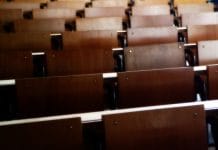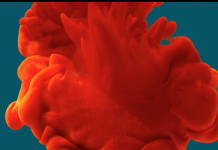The 2020 lockdown posed many challenges for both students and instructors. For Lynn Tucker and Laura Risk, two professors in the University of Toronto Scarborough (UTSC) Music and Culture program, it was an opportunity to pivot, innovate, and explore avenues of engagement beyond the classroom. They brought together a team, including research assistants Delicia Raveenthrarajan and Lloyd McArton, to develop a new centre for music and community engagement and in 2022, they launched, SoundLife Scarborough (SLS) out of the Department of Arts, Culture and Media and with the support of the Dean’s Office.
Despite its relatively recent origins, SLS’s seeds were planted much earlier, specifically, with the Music and Culture program shifting gears in 2015 to define three areas of focus: Community Music, Music and Society, and Music Creativity and Technology. With these changes came new faculty, some of whom already had numerous Scarborough community connections. The creation of SLS adds a new dimension to the work by bringing together existing community music-centered partnerships into one visible and accessible space.
With this plan, they began laying the groundwork and Tucker and Risk’s ideas for SLS quickly evolved. According to Risk, they were “interested in the ways that making-music and being creative with music is also about being part of your community through music.” And so, their vision of creating an “all-in-one space for music-making and community connections” began to take shape.
Looking to involve a significant student presence in SLS, they pitched the idea to a then second-year music program student, Delicia Raveenthrarajan, who had stood out to them as an ideal Research Assistant for the project. According to Raveenthrarajan, in that first meeting, “We weren’t trying to reinvent the wheel. Instead, we were trying to see what similar organizations were doing and how we could continue to work with the Scarborough community – all the while being careful to meaningfully engage with the community around us and understand what they need.”
For the first four months of the planning process, they conducted “landscape interviews.” In these interviews, Raveenthrarajan surveyed faculty members and administrators of music programs from institutions in Canada and the US, and even further afield, to understand how they engaged with their local communities in music-making and experiential learning. With the research she gathered, the team realized that they were looking to do something a bit different from other universities. Instead of trying to embed community partnerships into existing institutional structures, Raveenthrarajan shared they were looking to “co-create with the community from the ground up … decentering the university to create a more equitable organization.” In essence, SLS prioritizes being on equal footing with the community partners they work with.
But how do they practice this realistically? According to Tucker, “In a large institution such as U of T, there’s an inherent power dynamic when partnering with local community organizations.” To address this, SLS emphasizes the value of reciprocity. For instance, last November they hosted an event in which they invited community partners to collaboratively brainstorm potential areas of growth with SLS over the coming years. “Our goal is to build trust and create space for current and potential partners,” says Tucker, but also “to make the UTSC campus more porous to community members.”
This is where SLS’s focus on reciprocity really shines. On a smaller everyday scale, what reciprocity means to SLS in their community partnerships is a simple question about the mutuality of the exchange. Specifically, according to Risk, they start with the question: “We know what we’re getting from this partnership, but what is in it for the community partner?” Risk plainly puts it, “If we can’t answer this, then this partnership shouldn’t be happening.”
Supporting experiential learning is a key facet of SLS. Many music students hired to join the SLS team have the ability to exercise much of the community partnership-specific networking and interfacing theory taught in their courses, through developing initiative presentations and getting real-time feedback from community partners. Students also learn about and work on the administrative side of the organization, developing skills in areas such as programming, visual design, marketing and communications, and co-facilitating music-making events.
How can students and community members participate? SLS offers a wide variety of fully accessible community music-making opportunities including weekly “Just Drum It” hand drumming sessions facilitated by Derek Grey, and Brazilian Maracatu sessions led by Juno-nominated master percussionist Aline Morales. The doors are also open wide for engagement in future public talks and performances, as well as symposia. As for the future, according to Risk, “We’re still in the dreaming stage,” but whatever that brings, their priority is to put community relationships first and allow music-making to thrive in the process.
Visit SoundLife Scarborough (SLS) to learn more.
See what else SLS is up to!
Brazilian Maracatu
Just Drum It
This Uke’s for U-TSC Ukulele Drop-In Sessions
By Daniela Atere























